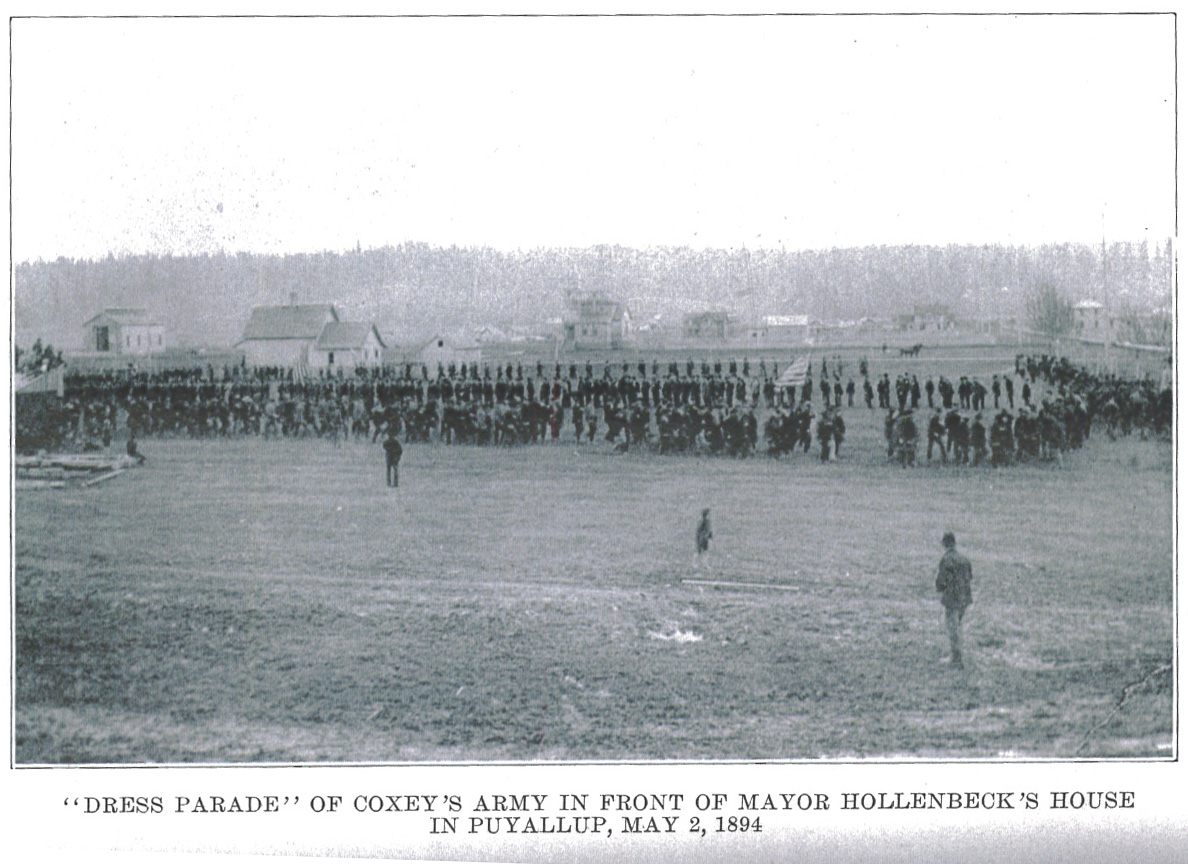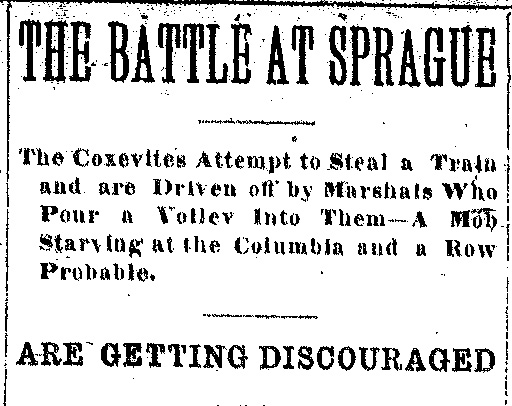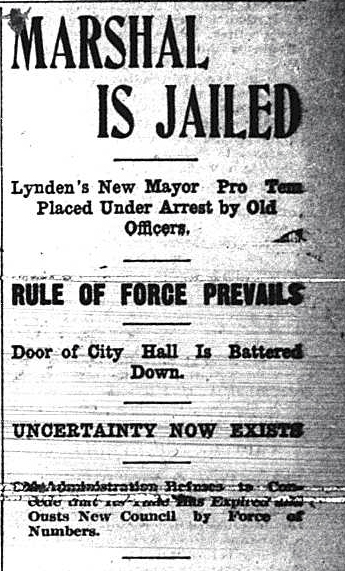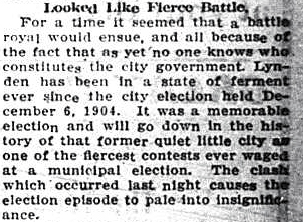
Photo from Washington, West of the Cascades
From the desk of Steve Willis, Central Library Services Program Manager of the Washington State Library:
In the midst of one of the worst economic depressions of the 19th century, thousands of unemployed workers were called upon nationwide to march in protest at Washington D.C. in 1894. They gained the nickname “Coxey’s Army” after their Ohio-based leader, Jacob Coxey. The Coxeyites in the Pacific Northwest were among the most radical followers, and dubbed themselves the Northwest Industrial Army. If you consider they used guerilla tactics and got into several skirmishes involving firearms, they really were an army.
In the spring of 1894 the Seattle and Tacoma units of the Northwestern Industrial Army met in Puyallup, using that town as their springboard for the cross-country journey. They numbered over 1000. In other states some of the government officials were sympathetic to the movement, but Washington Gov. McGraw was no friend to the Army.
Train hijacking in small groups became the main mode of transportation for the industrial soldiers. The following article in the May 11, 1894 issue of the Bellingham Bay Reveille, published out of New Whatcom, not only gives us a case study in the conflict, but also demonstrates a statewide interest in this struggle:
THE BATTLE AT SPRAGUE
The Coxeyites Attempt to Steal a Train and are Driven off by Marshals Who Pour a Volley Into Them — A Mob Starving at the Columbia and Row Probable.
ARE GETTING DISCOURAGED

“SPOKANE, Wash., May 8.–Telegrams from Sprague bring information that a collision occurred at that place between the industrials and United States marshals, arising out of an attempt on the part of the industrials to capture a cattle train. Circumstances of the affray as near as can be learned were as follows:”
“A cattle train passed through Sprague at the rate of 30 miles an hour, backing to Patterson. An industrial who was secreted on the train succeeded in manipulating the brakes and the train came to a standstill at a point about four miles out of Sprague, where some thirty industrials were lying in the grass. A posse of marshals was close at hand, watching the industrials. As the train slowed down and stopped, the industri[als] made a rush for it, when the marshals arose and fired a volley into their ranks. Some twenty shots were fired. It is not known whether any were injured. Before the train started again ten of the industrials succeeded in getting aboard and made their way to Spokane.”
“Excitement over the affair is intense in Spokane and at Sprague United States deputy marshals are holding a large body of industrials in check at the bridge across the Columbia river and will permit no man known to belong to the army to cross. Industrials are in a serious plight, for there is no town for seventy miles on that side of the river at which they can get anything to eat. Starvation is staring them in the face and they are becoming desperate. If they are not permitted to cross the river, there will likely be serious trouble, as the men will be like hungry wolves at bay.”
“At this point a deputy marshal found a man, presumably an industrial, stealing a ride on a brake under a car. He pointed a pistol at the man and ordered him out. A gang of industrials seized the deputy and beat him severely, nearly killing him. There are 300 of the industrial army who have succeeded in reaching Spokane; 200 are still at Sprague, and nearly all the others who left Seattle and Tacoma are scattered at different points along the line of the Northern Pacific in Eastern Washington.”
In Yakima and Montana some battles resulted in death or serious injury. A few soldiers in this tattered Army did reach Washington, D.C. and participated in the protest. Northwest historian Carlos A. Schwantes in his Coxey’s Army : An American Odyssey (1985) includes a nice chapter on the Northwestern Industrial Army and their vainglorious leader Frank “Jumbo” Cantwell, a boxer and bouncer who wore a special gaudy uniform while leading his troops. Cantwell had a long history of conflicts with the law before, during, and after 1894.
Much of the discontent of 1894 served as a prelude to the Populist sweep of 1896.











